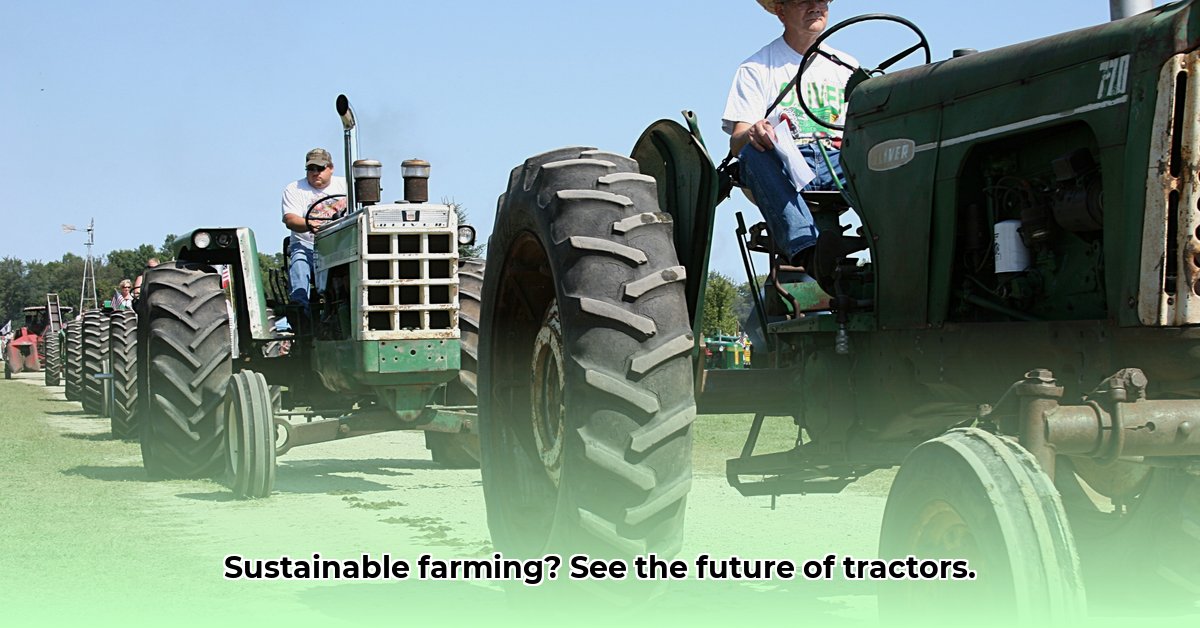
The Dundas Tractor Show, an annual event attracting farmers, enthusiasts, and collectors, offers a vibrant display of agricultural machinery. Rows of gleaming tractors, from vintage classics to cutting-edge models, fill the show grounds. But beyond the impressive machinery, a crucial question emerges: how strongly does the show reflect the growing urgency of adopting sustainable agriculture practices? For alternative fuel options, check out this resource.
While readily available information lacks specifics on dedicated sustainability initiatives, a closer look reveals potential connections. The sheer diversity of equipment displayed likely draws a large number of working farmers, many of whom are actively seeking ways to improve their operations and explore environmentally conscious technologies.
Sustainable Practices: A Cautious Assessment
Direct evidence of a strong focus on sustainable practices at the Dundas Tractor Show is currently limited. A dedicated section showcasing eco-friendly farming methods was not readily apparent. However, potential connections can be inferred. For example, fuel-efficient tractors, designed to lower fuel consumption and greenhouse gas emissions, may have been exhibited. Similarly, precision farming technologies — GPS-guided machinery optimizing planting and fertilization — could have been present, although not explicitly labeled as "sustainable." Such technologies, though not always overtly presented as such, are critical components of environmentally-friendly farming. The exhibition might also have included companies offering renewable energy solutions for farms, such as solar-powered irrigation systems.
However, without detailed exhibitor lists and specific product descriptions, these remain speculative observations. The lack of readily available, comprehensive data prevents a definitive assessment of the show's alignment with sustainable agriculture. This lack of transparency is a critical area needing improvement.
The Need for Transparency: Data and Reporting
The absence of easily accessible information regarding sustainability initiatives at the Dundas Tractor Show represents a significant gap. This lack of clarity makes it difficult to measure the event's contribution to promoting responsible farming. To effectively contribute to the growing movement toward sustainability, the show needs to improve data gathering and communication. Imagine a dedicated webpage showcasing exhibitors and their sustainable offerings, or a detailed catalog spotlighting environmentally friendly technologies. This would enhance transparency, attract a wider audience, and attract environmentally-conscious exhibitors and attendees.
Moving Forward: A Call for Action
The Dundas Tractor Show possesses significant potential to become a leading platform for showcasing sustainable agricultural innovations. Realizing this potential requires a targeted approach to data collection and reporting. Simple measures, like surveying exhibitors, can quantify the representation of sustainable technologies. Combining this data with descriptions of exhibited equipment would provide a clearer picture.
This information should be widely disseminated—through dedicated websites, press releases, and social media—allowing potential attendees, exhibitors, and the broader farming community to understand the show's commitment to sustainable practices. Such transparency would enhance the show's credibility and attract more participants dedicated to sustainable agriculture.
Broader Implications: A Sector-Wide Opportunity
The limited information regarding the Dundas Tractor Show's commitment to sustainability highlights a wider issue within the agricultural events sector. Many shows could benefit from a stronger focus on sustainable farming methods. These events provide opportunities for knowledge sharing and innovation. Integrating more sustainability-focused exhibitions, workshops, and educational materials would transform these events into hubs for promoting environmentally responsible farming. The future of farming hinges on the adoption of sustainable practices, and events like the Dundas Tractor Show play a crucial role in driving this necessary transition.
Key Takeaways:
- The Dundas Tractor Show, while showcasing advanced agricultural machinery, lacks easily accessible data on its sustainability initiatives.
- Potential connections to sustainable practices exist, including the likely presence of fuel-efficient tractors and precision farming technologies.
- Improved data collection and transparent reporting are crucial for assessing the show's impact on sustainable agriculture promotion.
- A dedicated focus on showcasing sustainable practices at future shows could significantly enhance their value and influence.